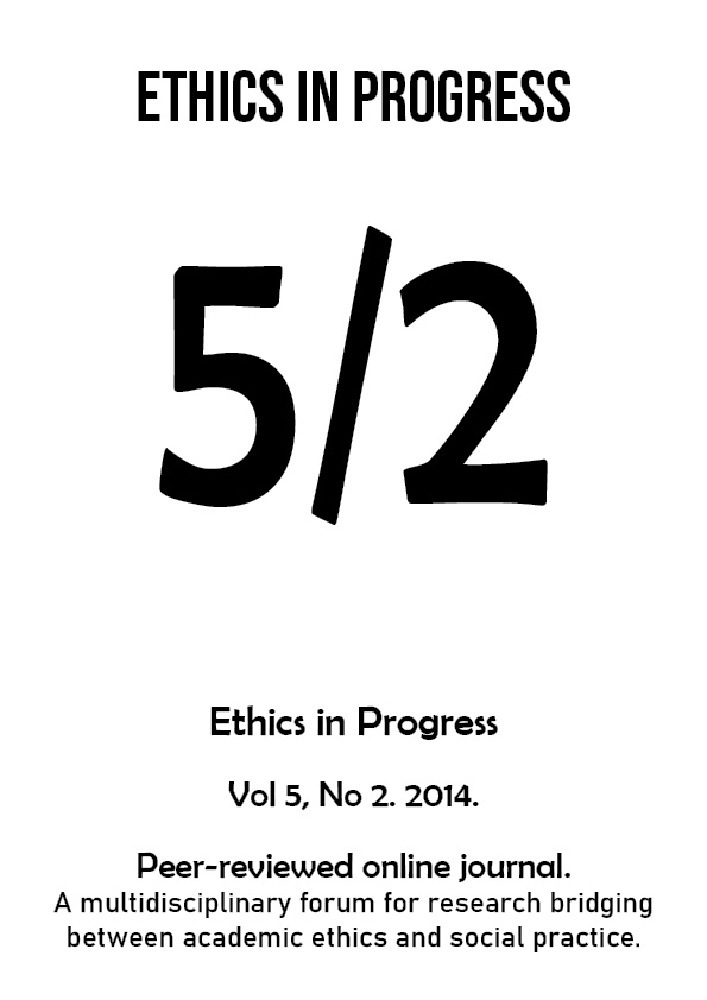Abstract
The aim of the article is to present Reyes Mate’s project for a culture of memory. Western culture/tradition tends to erase and blur the traces of crimes (even genocides) in order to achieve/restore peace; however, at the same time, this leads to ignoring the victim’s suffering and, in consequence, helps the wrongdoer. Following Reyes Mate, we argue that a memory of past injustices must constitute an integral part of the present and is the only means to prevent the hermeneutic death of victims. Any project for justice must put victims at the center of reflection. Memory is the beginning of the process that leads to reconciliation, for it makes it possible to redress both the victim and society. Moreover, it enables us to reclaim both the victim and wrongdoer as members of society. A culture of memory would also be a response to the failure of knowledge. Cases of extreme violence elude and transcend cognition; they are not only unthought but also unthinkable. Therefore, memory is a consequence not of discovering but of revealing the past: it follows from the fact that unthought exists and the unthinkable happened, which proves that our knowledge is limited and that we are able [and eager] to “invisibilize” victims’ suffering and depriving injustices of meaning. This is why memory should be the starting point for reflection on a new philosophical program against lassitude and oblivion, as well as on idealistic/anti-realistic and Enlightenment ideas. Memory reveals hidden aspects/dimensions of our reality and becomes at the same time an epistemic imperative and fundamental philosophical category.
References
A Serbian Film: Interview with Srdjan Spasojevic, 5 December 2010. Retrieved from: http://www.electricsheepmagazine.co.uk/features/2010/12/05/aserbian-film-interview-with-srdjan-spasojevic/.
Applebaum, A. 2004. Gulag. A History of the Soviet Camps. London: Penguin Books.
Bauman, Z. 2007. „Rozważania u kresu drogi.” Tygodnik Powszechny 49/2007: 12-09.
Bauman, Z. 2014. “Quo vadis, Europe?”. Open Democracy, 2 June 2014. Retrieved from: http://www.opendemocracy.net/can-europe-makeit/zygmunt-bauman/quo-vadis-europe.
Leśniewski, P. 2014. Społeczeństwo dialogu. Prolegomena do teorii rekoncyliacji. Poznań: Kontekst.
Littell, J. 2007. “La cultura no nos protege de nada. Los nazi son la prueba (interview).” El País, 27 October 2007.
Mate, R. 2002. “O sofrimento do inocente e a universalidade da redenção.” Cultura 15: 289-305.
Mate, R. 2003. Memoria de Auschwitz. Actualidad moral y política. Madrid: Editorial Trotta.
Mate, R. 2011. Tratado de la injusticia, Barcelona: Anthropos.
Mate, R. 2011a. Por una justicia anamnétic. Iglesia Viva 247: 29-48.
Mate R. 2013. La piedra desechada, Madrid: Editorial Trotta.
Mate R. & Mayorga J. 2000. Los avisadores del fuego: Franz Rosenzweig, Walter Benjamin y Franz Kafka. Isegoria 23: 45-67.
Rosenzweig, F. 1971. The Star of Redemption. Trans. from the 2nd edition of 1930 by W. H. Hallo. New York–Chicago–San Francisco: Holt, Rineheart & Winston.
Wiesel, E. 1986. “Hope, Despair and Memory. Nobel Lecture.” Retrieved from:http://www.nobelprize.org/nobel_prizes/peace/laureates/1986/wiesel-lecture.html.




